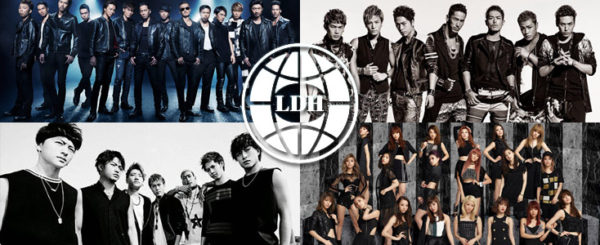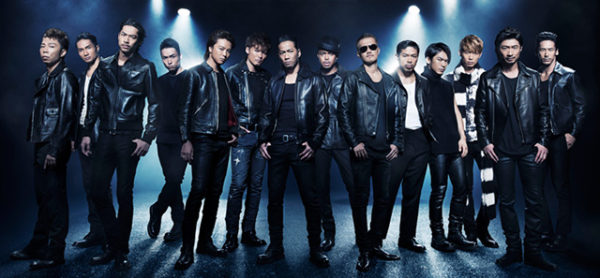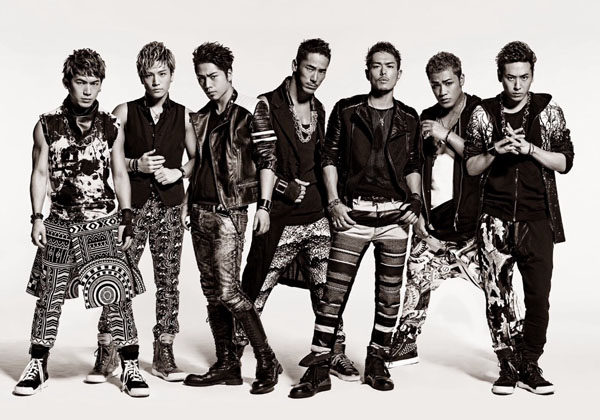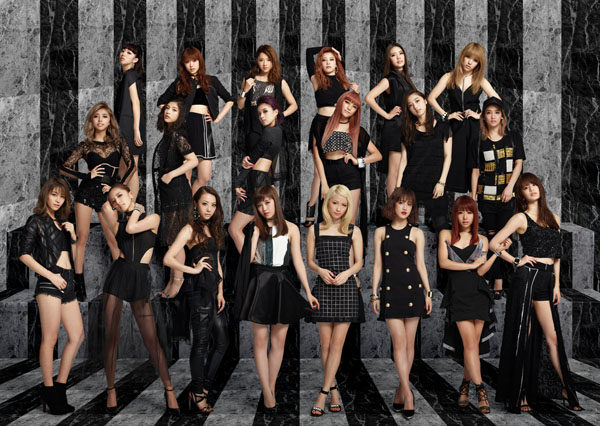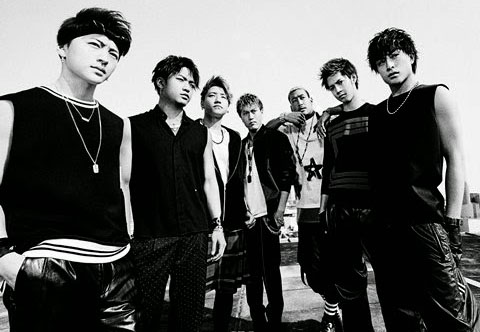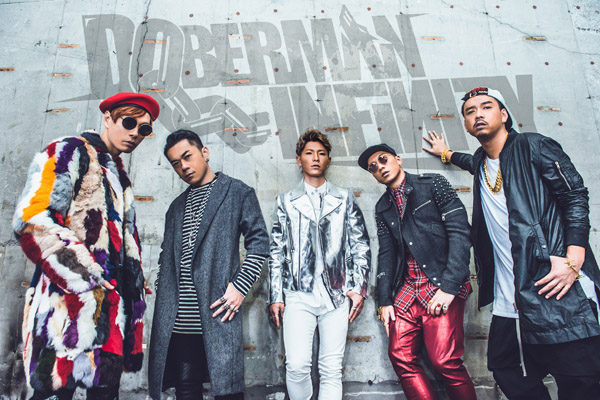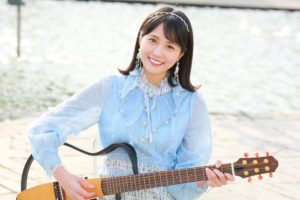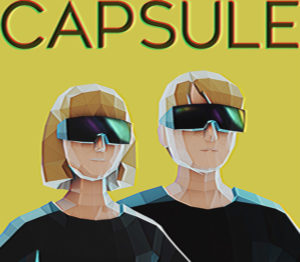How LDH and their acts are changing the face of JPop
In the HiGH&LOW review, I called that the best and most important JPop album of the year. The “best” part was explained there, but why is it oh-so-important? To understand this, we gotta delve into the history of LDH, the agency behind the HiGH&LOW project, but before we do that, we also need to go back in time a bit and do a very fast Japanese boy band / girl group history wrap up.
This is part #2 of the double feature. Read part #1, a review of HiGH&LOW here.
A brief boy band / girl group history
Let’s start with boy bands: that part of the market was ruled by a company called Johnny & Associates since the ’60s and when I say rule, I mean RULE. The agency quickly became extremely powerful by not only managing boy bands, but also pushing its insanely popular male idols to every field of the entertainment industry. And being afraid that someone else might get a share of their precious little idol cake, they used their power to boycott media appearances of other boy bands… and that isn’t even the main problem with them. The main problem is that the whole company is stuck in the past, somewhere around the late’80s / early ’90s and their idols look and (mostly) sound like they are straight out of that era. They do have nice surprises once in a while, like Tomohisa Yamashita‘s dance music EP, Asobi from 2014, but these are rare and quickly forgotten in the endless sea of old fashioned pop songs and ballads. And to make matters worse, the agency also thinks that the Internet, digital music formats, social media and such are the work of the devil, so they keep a distance from anything like that. So, with this attitude, their dated sound and by not letting any other boy bands rise, they were blocking progress for decades, as there wasn’t anyone to disrupt the status quo.
For girl groups, even though the history was very different, the results were quite similar: after the golden age of the girl-next-door idols in the ’80s, the ’90s brought a well needed change with a long line of more modern, mature and diverse groups, like MAX, Speed and such. Up until Morning Musume and AKB48 rose to fame, reinventing the ’80s recipes and idol groups became the rage again. And from then on, it was all about the “pure and innocent” girls (so pure and innocent, that some of the AKB related girls eventually ended up as porn actresses) and their mostly generic music that yet again sounded like it was made back in the ’80s. And again for a long while, there was no real hope for a change, as most agencies preferred to play it safe and launched more and more of the same kind of female idol groups instead of experimenting with something else… especially as the rare attempts to launch more mature girl groups mostly ended up as failures.
Sure, all these acts were and are extremely popular, but they were definitely not for everyone, especially not for young people who were more into to current pop and dance music trends, who liked to go clubbing and wanted something more modern and cool, instead of listening to the very same kind of stuff that their parents were listening to when they were teenagers. So, there was a huge gap in the market, that nobody seemed to care about, especially not the mostly elderly agency managers. Sure there were a few acts, like JPop Queen Namie Amuro, that were fine with this part of the audience, and there were all the imported KPop acts of course, but there wasn’t any huge local thing for them to be crazy about. Enter EXILE and LDH.
From EXILE to LDH
EXILE started around 2000 as an R&B / soul / new jack swing group under the Rhythm Zone label of Avex, one of Japan’s biggest record companies and even though they could be considered a boy band, as their music style, image and target audience was so different, nobody really though of them as a competitor for J&A at that time. They became insanely popular by the end of the decade and it was after that, that things started to change. Their sound started to shift more and more towards pop and dance music, while EXILE leader Hiro‘s talent agency, LDH also started to debut new, younger groups, that were going even further to that direction. In just a few years, they built up a very strong roster, launching boy bands like Generations and J Soul Brothers (their third generation actually, but let’s not get into that now), the all girl super group E-Girls (made up of members of three other girl groups) and signing already established acts like Doberman Infinity (a hip-hop group formerly known as Doberman Inc.). They were all very different from what Japan’s mainstream music market had to offer previously: modern, young, cool, embracing the social media and digital music, with none of the awkwardness of the idol groups… no surprise that they always intentionally avoid the term “idol”. All this with in-house talent tuition, a growing number of solo acts, more and more new groups, like the The Rampage or EXILE’s sub-unit The Second and also, expending to other areas of entertainment, especially acting. And most importantly: with music, that manages to stay uniquely Japanese, while it takes its cues from the current Western trends.
LDH Now
So, starting from a very different direction, changing when they were huge enough to do whatever they pleased, they became a more modern and fresh alternative for the J&A and AKB empires, all this basically within a few years. Was this their aim from the beginning or things just turned out this way? We will probably never know. But it does not really matter either, what matters is that they finally managed to shake things up, to bring a much needed variety to the JPop scene, especially to its boy band / girl group part and incorporated contemporary club music to the Japanese mainstream more successfully than almost anyone before them. And Hiro, making clear that he not only has a vision, but also knows how to accomplish it and who to call for help if needed, brought two club favorites, Verbal (of m-flo fame) and DJ Daruma (formerly of local rave and electro house revolutionaries Dexpistols) on board to form the agency’s DJ and producer unit, PKCZ, along with former EXILE DJ Makida. And this unit not only provides them with some great music and remixes, but also gave them access to Japan’s vast club scene.
But even though club music plays a vital part in the LDH sound lately, fortunately they remained very diverse musically and why I consider the HiGH&LOW soundtrack to be the most important JPop release of the year, is because it gives a very good overview of the agency’s current sound. It includes more traditional JPop boy band songs, their signature club tracks, girly pop-rock, ballads, hard hitting hip-hop and even a bit of more straightforward rock, thanks to Ace Of Spades. And it includes nearly everyone from the LDH roster, so, basically it can be seen as a perfect showcase of the company that is currently making the biggest waves in Japanese Pop music scene.
The future…?
Of course, it is not just LDH alone that’s changing the face of JPop. Far from that. There are several other acts, that are just as much a part of a bigger, ongoing shift towards a different, more modern sound and attitude, but it is LDH that’s in the forefront right now and it is them that could finally shake up the boy band scene in JPop, that was definitely the part that needed a change the most. And right now LDH is at its peak. They rule the music charts, they are literally all over the place and HiGH&LOW, despite the criticism it gets, managed to solidify them as an entertainment empire in its own right, that can successfully pull off such an ambitious multi-media project.
The big question however is: will they be able to maintain this level of success? Of course that’s a question nobody can answer for sure at the moment. Trends change so fast, what’s cool this year, can be considered totally uncool the next and as a result, in the long terms the biggest threat to them might be the very same thing that helped the agency’s new generation rise. As one of the things that made J&A acts and the female idol groups so popular is the timeless nature of their music. It is dated, it is old fashioned, it can be painfully generic and very often you can not tell if a song is brand new or from the ’80s, but that is exactly what makes them sound “safe”, that is what makes them sound instantly familiar and gives a comforting feel to the fans. However most of what LDH is doing recently is very “NOW”. Instead of using decades old recipes, they follow the current trends and they make music for the current young generation. A generation that will grow up in a few years, stop going to parties and might even stop listening to this kind of music altogether. So, LDH’s best bet is probably to continuously change, adapt and stay up-to-date with the trends. Will they manage to do this? Or will they choose another path? Impossible to tell. But whatever they do, it will be challenging, but that alone is a great and respectable thing and a very welcome change in the mainstream Japanese music industry, that finally we have a big talent agency that is open to new challenges instead of playing safe like pretty much everyone else did up till now.

